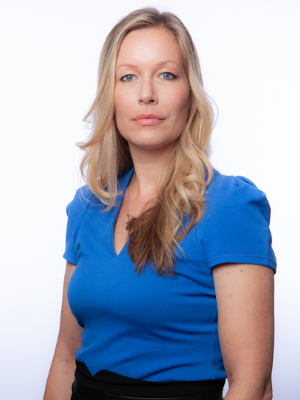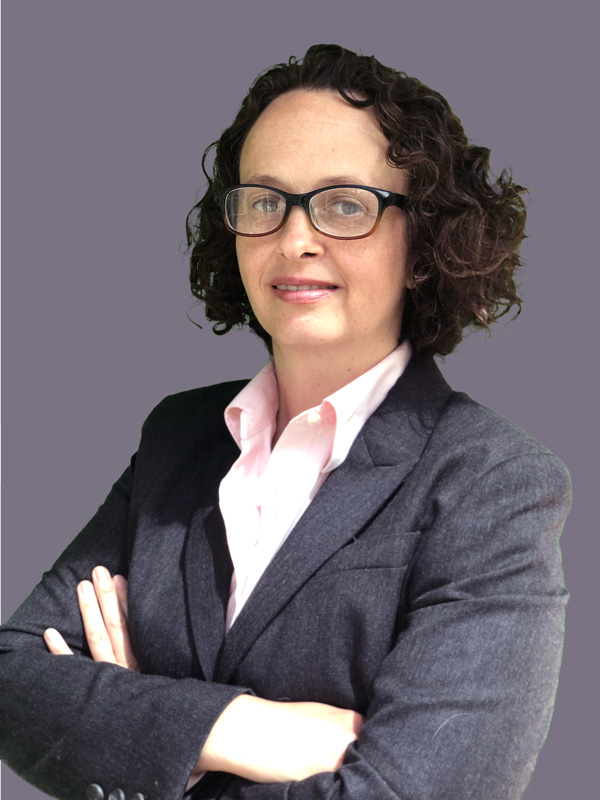 “A lot of people will tell you this or that can’t be done, and that goes for your personal and your professional life, but don’t take that as a given,” advises Anna de Jong. “Have the confidence and be strong until you get the answer that works for you.”
“A lot of people will tell you this or that can’t be done, and that goes for your personal and your professional life, but don’t take that as a given,” advises Anna de Jong. “Have the confidence and be strong until you get the answer that works for you.”
De Jong speaks about how the journey you take is what shapes you, the importance of knowing yourself and having the confidence to pursue the important questions.
What Defines You is the Journey You’re On
After growing up in a small village in the north of Holland, where she felt her limbs wanting to stretch even as a girl, de Jong adventured for a half year opportunity in London that became fifteen years between Merrill Lynch, Morgan Stanley and other firms, thriving amidst a diversity of people, experiences, inspiration and opportunities.
Just when she reached the point of considering a move back to Holland for family motivations two years ago, PGIM Fixed Income approached about her current role in the Netherlands, which met the professional trajectory she also wanted. With London life having felt as much like home to her, de Jong reframes the question of where are you from to what it’s really about.
“It’s not where you’re from that matters. It’s just a box that people want to put you in. Ultimately, it’s about the journey that you’re on and the journey that you take that opens doors, or closes them,” she reflects.
It’s About The Personal Factor
The people factor has always magnetized her to her work. “In my field of work, I work for my clients and prospects, and I need to very quickly understand who I’m dealing with and how to progress things,” says de Jong. “You must be able to read people quickly in order to be successful, and that still holds today. I think that human element is what makes me most content in my work.”
De Jong advises that when working closely with others, it’s important to know yourself so you don’t lose your own intentions in any deal or interaction: “I’ve learned you need to hold your ground. You must understand yourself in order to do well professionally, but also personally. That’s a journey I also help other people with: stick with your convictions, yet be open to learning.”
Being approachable is important to de Jong: “I don’t think in different levels. I’ve learned from all walks of life and different parts of business and people,” says de Jong. “I’m always available and listening to everybody around. I am genuinely interested in people, and I think if you can understand what’s going on, then a lot of things make more sense, and it also matters when achieving the right results.”
De Jong notes that while remote working has been validated, being together with your team and clients is invaluable for creating connection and work culture.
“Covid is a lonely time, I think,” she reflects. “And ultimately you spend so much of your time at work. It’s good to see people, but being behind a screen also hides a lot. There’s no longer an excuse for saying that we can’t work from home because we all clearly can, but it’s also important to be with colleagues and have face-to-face time.”
Knowing and Balancing Your Values
“Someone once told me that when your career takes off, something else is going to suffer. For a long time, I was convinced that you have to work very hard while other things would have to take a backseat,” says de Jong. “ I have become of the opinion that’s entirely untrue. You are actually more successful when you understand what is really important to you and cultivate personal satisfaction, as well.”
Years ago, a friend introduced de Jong to a four pillar system. The four pillars represent what is personally important to you and emphasize keeping what matters to you in a balance. She uses the analogy of a chair, it can function with three but ideally needs four legs to be fully stable. For de Jong, she values home and family, friends, work and health: “If one gets out of whack, it makes the rest volatile and you do not perform as well, personally or professionally. It can be a juggling act, but you don’t have to forget about what’s important in your personal life in order to succeed in professional life and vice versa. In a way, they all become one.”
When the work aspect of life becomes too much, de Jong feels it’s important and okay to speak up about that, and not fall into the cultural notion of having to keep everything separate. Personally, she doesn’t resonate with a sense of being “successful” that connotes “achieving the best results regardless.”
De Jong does not perceive that getting the result, no matter what the impact on others or personal life, can ever be success. Rather, she speaks more to harmony and co-creation from a place that is aligned with your internal values.
When it comes to her personal success, “I do my work with lots of pleasure and have happy clients who are keeping and raising assets,” she notes, “but it’s also being home with my daughter and husband. It’s as elementary as that.”
De Jong feels well-matched by the atmosphere at her workspace: “PGIM Fixed Income has this fantastic work culture, that when I joined just felt like a warm blanket – where people work together, give each other challenges and opportunities. It’s been really fantastic.”
With a desire to keep growing, she is curious about pursuing courses in ESG investing and being able to mentor even more in that space.
Guidance For The Journey
“Some guidance that really stuck with me is to ask the same question until you get the right answer,” she notes, having tried this out in areas like promotion as well as anytime you’re immediately told something isn’t possible. “I will continue asking a question until I get the answer that I think works best.”
De Jong tells mentees: “Know, embrace, respect yourself and dare to be different. You have to be yourself, because if you don’t know who you are, then you don’t know where you’re going. It’s the journey you’re on that defines who you are. Embrace that.”
She emphasizes accepting and learning and being willing to let something go when it’s not the right thing. The more honest and non-judging you can be with yourself and others, feels de Jong, the more trust you build and the more you create results together. She has always advised women to be kind to each other, as it can be especially tricky to navigate in banking or finance when you first begin as a woman.
The hardest experience she’s had was in a previous role when she returned from maternity leave only two and a half months after having her daughter, and found part of her region moved from her remit and no expanded team as anticipated. Reflecting, she realizes the feeling that she could only take such a short leave was a red flag in feeling supported.
De Jong feels both men and women can contribute to normalizing parental leave by embracing it, and notes that her own husband has been a huge support.
Vocalize and Invest In Your Needs
De Jong now realizes that earlier in her career, she was often too scared to really ask for what would fulfill her, and so she often got something else. She feels it’s important to be very clear when you’re not satisfied.
“I would get frustrated but nobody seemed to notice, and then I would hand in my resignation and people were so surprised and often disappointed,” says de Jong. “They would ask, ‘why did you not tell me before?’ And I seriously thought I had, but clearly hadn’t been very vocal about my dissatisfaction.”
De Jong enjoys her four-year-old daughter, playing piano and is still looking for an experience in Holland akin to the community volunteer hub she loved in London. Her favorite volunteer work has been a charity she helped create called Launchpad Labs, which offered workspace and mentoring to those with challenging backgrounds.
“Helping others is a great way to stay on your feet to understand the bigger picture and that helps in your personal space and helps with your work,” says de Jong, “It helps to ground those four pillars and understanding what is important.”
She emphasizes investing in yourself and your personal happiness, as well as listening to your body. She loves exercise, baking, and continuing to learn and grow.
By: Aimee Hansen


